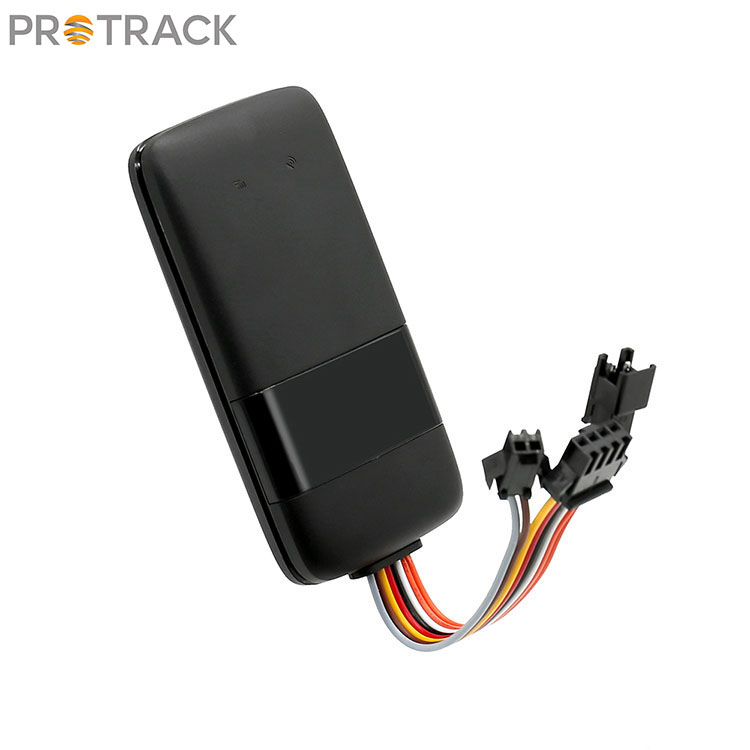Unlocking the Power of GPS Locators: Tracking Made Simple and Efficient
2025-01-24
In an age where connectivity and real-time data are more important than ever, GPS locators have become indispensable tools for individuals and businesses alike. From tracking vehicles and assets to ensuring personal safety, GPS locators provide peace of mind and unmatched precision.
This blog explores the fundamentals of GPS locators, their practical applications, and why they are a game-changer for modern living.
What is a GPS Locator?
A GPS (Global Positioning System) locator is a device that uses satellite signals to determine the exact location of an object, vehicle, or person. By communicating with a network of satellites orbiting the Earth, GPS locators provide accurate coordinates that can be accessed in real time through dedicated apps or platforms.
The integration of GPS technology into compact, portable devices has revolutionized how we navigate and monitor the world around us.
How Does a GPS Locator Work?
1. Satellite Communication: GPS locators receive signals from multiple satellites in orbit to determine their precise position.
2. Triangulation: The device uses a process called triangulation to calculate its location based on the distance from at least three satellites.
3. Data Transmission: Once the location is determined, it is sent to the user via a mobile app, web platform, or SMS, depending on the device’s capabilities.
Applications of GPS Locators
GPS locators are incredibly versatile, serving a wide range of purposes across personal, commercial, and industrial domains.
1. Vehicle Tracking
One of the most common uses of GPS locators is for tracking vehicles. Businesses with fleets can monitor driver behavior, optimize routes, and improve delivery times. On a personal level, GPS trackers can help locate stolen cars or monitor young drivers for safety.
2. Asset Tracking
From heavy machinery on construction sites to shipping containers in transit, GPS locators help businesses keep track of valuable assets. This ensures better inventory management and reduces the risk of theft or loss.
3. Personal Safety
For individuals, GPS locators are a vital safety tool. Parents can use them to monitor their children’s whereabouts, while wearable trackers ensure the safety of the elderly or individuals with medical conditions. In emergencies, GPS locators can send real-time location updates to responders.
4. Pet Tracking
GPS trackers for pets have gained popularity, allowing pet owners to locate their furry friends if they wander too far from home.
5. Outdoor Adventures
Hikers, campers, and outdoor enthusiasts rely on GPS locators to navigate unfamiliar terrains. Devices with SOS features add an extra layer of safety during adventures.
6. Sports and Fitness
Some GPS locators are integrated into fitness trackers, enabling users to monitor their runs, cycling routes, and other activities with precise location data.
7. Supply Chain and Logistics
In logistics, GPS locators are essential for tracking shipments in real time, ensuring transparency, and improving customer satisfaction.
Key Features to Look for in a GPS Locator
If you’re in the market for a GPS locator, here are some essential features to consider:
1. Real-Time Tracking: Ensure the device provides live updates for accurate location monitoring.
2. Battery Life: Look for a tracker with long battery life to reduce the need for frequent charging.
3. Geo-Fencing: This feature allows you to set virtual boundaries and receive alerts when the device leaves or enters a designated area.
4. Two-Way Communication: Some GPS locators offer call or messaging features, which are particularly useful for personal safety.
5. Waterproof Design: For outdoor or pet use, a waterproof tracker is a must.
6. Compact and Portable: Choose a device that is lightweight and easy to carry or attach to an object.
7. User-Friendly Interface: The accompanying app or platform should be intuitive and easy to navigate.
8. Durability: A sturdy build ensures the device can withstand rough conditions.
Benefits of Using GPS Locators
1. Enhanced Safety:
Whether it’s tracking a loved one or locating a vehicle, GPS locators provide unparalleled safety and peace of mind.
2. Improved Efficiency:
Businesses can use GPS data to optimize routes, monitor performance, and reduce operational costs.
3. Real-Time Alerts:
With features like geo-fencing and movement detection, users can receive instant notifications about unauthorized activities.
4. Reduced Losses:
For businesses and individuals, GPS locators help prevent theft and loss by providing exact location data.
5. Convenience and Accessibility:
With GPS locators connected to smartphones and computers, tracking is as simple as opening an app.
Popular Types of GPS Locators
- Portable GPS Trackers: Ideal for personal use, such as tracking children or elderly family members.
- Vehicle GPS Trackers: Installed in cars or trucks to monitor location and performance.
- Pet Trackers: Lightweight and often attached to a pet’s collar.
- Smartwatch Trackers: Designed for children or adults, combining tracking with communication features.
- Heavy-Duty Trackers: Built for industrial use, these devices can withstand harsh conditions.
Future of GPS Locators
As technology evolves, GPS locators are becoming smarter and more efficient. Advances in satellite technology, AI integration, and IoT (Internet of Things) connectivity promise even greater precision and functionality. In the future, GPS locators will likely be smaller, more affordable, and capable of integrating seamlessly into everyday devices.
Conclusion
GPS locators are a testament to how technology can enhance safety, efficiency, and convenience. Whether you’re safeguarding your family, optimizing your business operations, or exploring the great outdoors, GPS locators are your reliable partner in navigating life.



